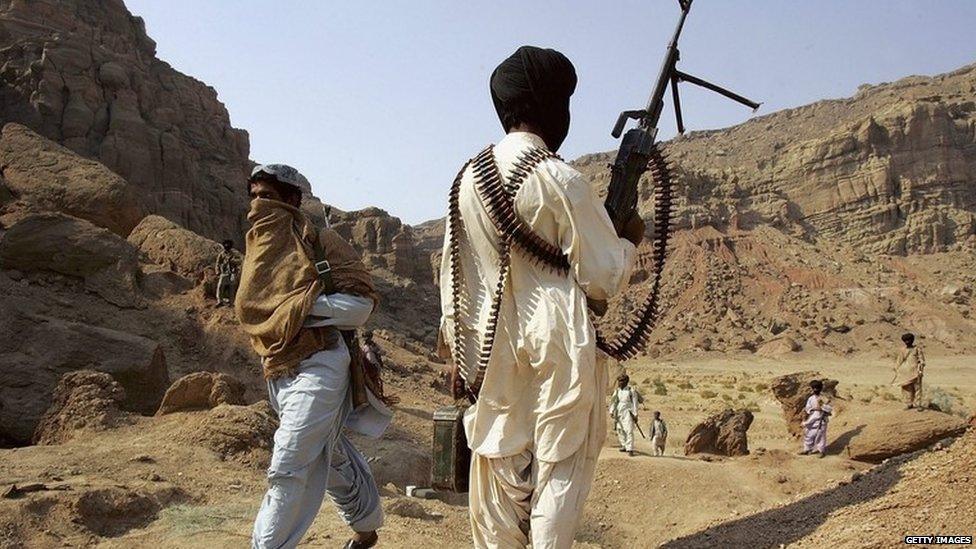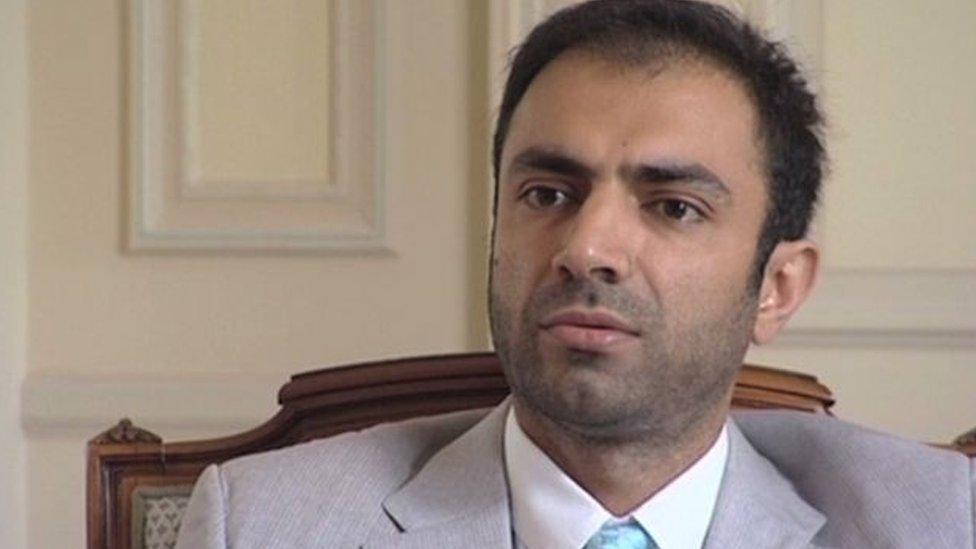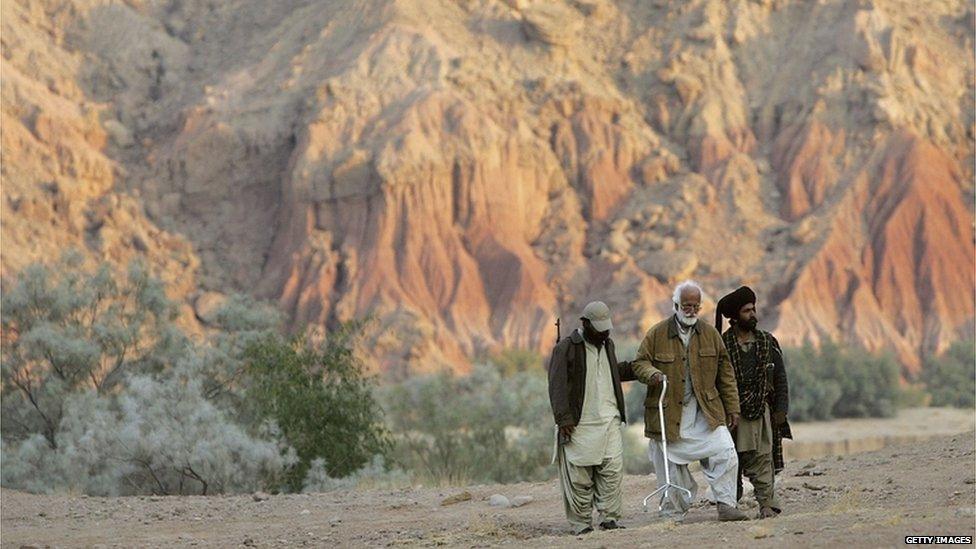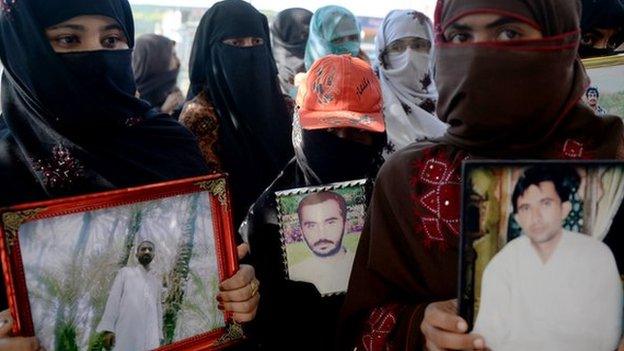Balochistan rebel leader Brahamdagh Bugti 'ready to talk'
- Published

Bugti rebels have been fighting an insurgency in Balochistan for over a decade
A leading Baloch separatist has said he is ready to consider dialogue with Pakistan, as long as the army ends military operations in the province.
Brahamdagh Bugti told BBC Urdu his party could drop calls for independence if "the Baloch people agree".
Mr Bugti, who lives in Switzerland, is accused of leading an armed struggle.
Balochistan has seen a long-running conflict between security forces and separatists who want a greater share of the province's natural resources.
Brahamdagh Bugti, 34, is regarded as one of the most hardline of the Baloch separatist leaders and has until now been opposed to any rapprochement with the Pakistani state which he has vowed to "fight to the death".
His remarks are being viewed as an olive branch to the military and could signal the first softening of attitudes within the separatist movement.

Brahamdagh Bugti said it would be foolish to refuse dialogue "if it is offered in the right spirit"
Talking to the BBC from his base in Geneva, Mr Bugti said the Pakistani military had already suffered a moral defeat.
"What has been the cumulative effect of the last 10 or 15 years of violence, murder, enforced disappearances, arbitrary arrests and body bags? Have the Baloch people changed their minds or has this strengthened their resolve?"
He made his remarks in an exclusive interview with the BBC Urdu service on the ninth anniversary of the death of his grandfather Akbar Bugti, a former governor and later separatist leader who was killed in a Pakistani military operation in 2006.
The killing ignited the latest wave of the Baloch insurgency which has claimed thousands of lives since.
Asked if he might drop demands for a separate Balochistan, as a condition for peace talks to begin, Mr Bugti said: "If our friends, allies, comrades and the Baloch people want this then of course we will be prepared to talk to Pakistan."
He denied any contact with Pakistani Interior Minister Chaudry Nisar Ali Khan who is currently in London where other Baloch leaders are based.

Akbar Bugti was 79 when he was killed by the military in 2006
"If he wants to meet us we are prepared to meet him. It would be foolish for anyone to refuse a political dialogue if it is offered in the right spirit."
Mr Bugti said previous attempts at dialogue had not been serious, and added: "If the fighting continues it will be impossible to hold peace talks and that is why we are calling for an end to the military operation and withdrawal of armed forces from the province.
"Only if these demands are met can conditions be ripe for peace talks."
Mr Bugti said it was up to the military to make concessions.
"We are the persecuted minority in this conflict. It is up to them to tell us what they are prepared to give and what their agenda is. If talks begin we will take to them only what is acceptable to the majority in our ranks.
"The army has to stop believing it can solve every problem with force. We don't have a huge army to fight them but nothing will be achieved by this kind of bloodshed."
Pakistan blames India for a campaign of sabotage and disruption in Balochistan and has accused it of fuelling the insurgency in the province.
Mr Bugti said the military made such allegations to hide its own failures.
"If India wants to help us why should we refuse? Everyone has the right to ask for help in self-defence. We can also ask for help from America and the United Nations. India is not responsible for the military operation in Balochistan."
- Published22 February 2014

- Published29 February 2012